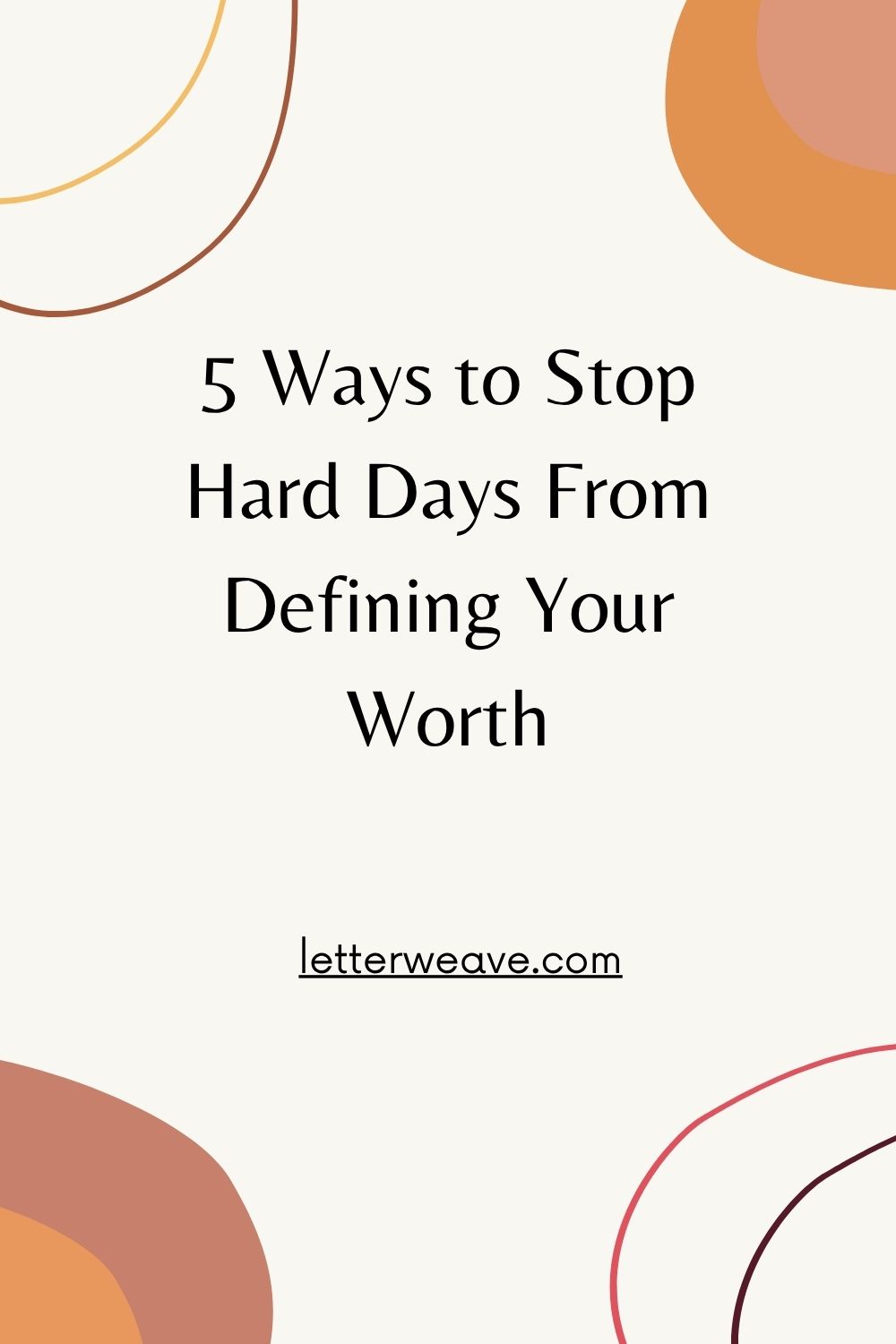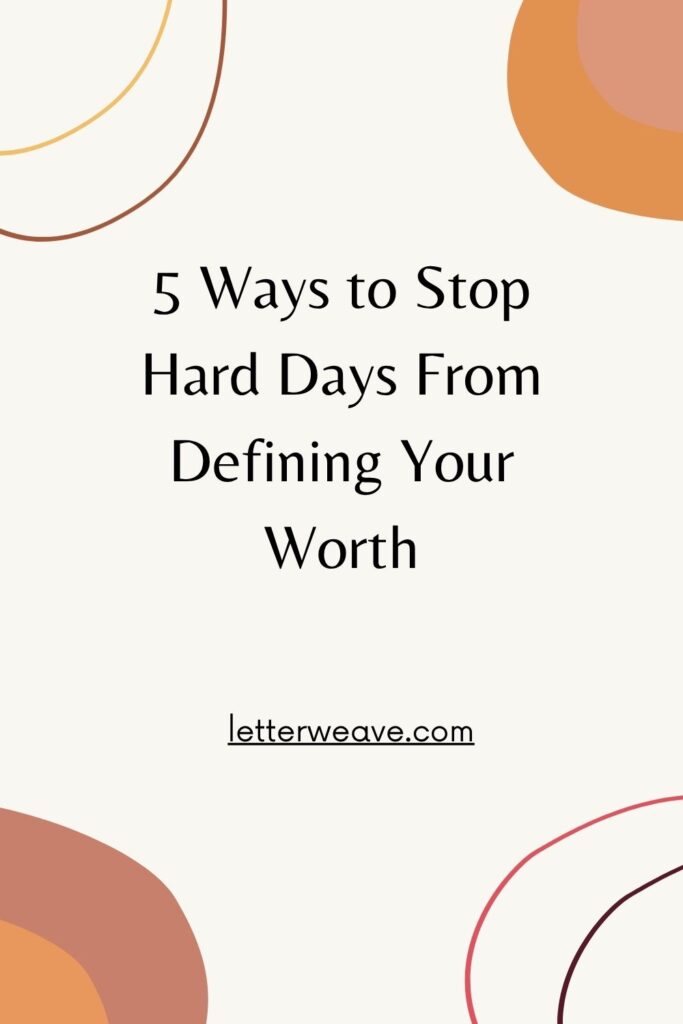Phone:
01752740808
Address:
kishoreganj - Dhaka - Bangladesh

There was this one Tuesday—gray sky, PMS fog, WiFi acting like it paid rent but did nothing—and I straight-up sobbed over a spoon. Not a fancy one. Just a slightly-stained cereal spoon in the sink. The betrayal. It felt personal.
And no, it wasn’t about the spoon. It was about everything. About the emails I hadn’t answered. About the career milestones I hadn’t hit. About the unpaid parking ticket I kept pretending wasn’t real. My entire sense of worth felt tangled up in my productivity and performance—and on hard days, that meant it felt like nothing.
Let me guess: you’ve had your own spoon moment too.
We all do. Because somewhere along the way, we were taught that our value lives in our output. In our resume lines. In how “put-together” we can look when our internal world is on fire. So when things fall apart—when we don’t answer fast enough, succeed loud enough, or show up shiny enough—we question everything.
And that’s when it hits: the sneaky belief that we are only as good as how well we’re doing today.
But that’s a lie. A convincing one, sure. But a lie nonetheless.
So how do we actually stop hard days from defining our worth?
Not with motivational wallpaper quotes. Not by pretending we’re fine when we’re absolutely not. But by learning to sit with the mess and still remember our value.
This post is for the woman curled up on her bathroom floor wondering if she’s failing at being a person. For the creative who didn’t “make magic” today. For the overthinker who texted “lol no worries!” while quietly crying.
Here are 5 real, emotionally honest ways to stop hard days from defining your worth—tender truths straight from someone who’s been there.

The first time I cried at work, I tried to make it cute. I dabbed my mascara tears with a paper towel like I was in a rom-com. (Spoiler: fluorescent lighting does not make anything cinematic.)
But here’s the thing—hard days don’t need to be hidden or prettied up to be valid. Crying isn’t a weakness. It’s your body telling you it’s full. You’re allowed to overflow.
I used to believe that holding it all together was proof I was strong. That if I didn’t crack, maybe I was still good enough. But the truth? My strength is in letting it crack and knowing I’m still whole underneath.
Just because today hurts doesn’t mean you’re failing. And it definitely doesn’t mean you’re worth any less.
Let your humanness show. No apology necessary.
“You can have a hard day and still be a worthy, beautiful mess of a human.”
It took me 26 years and one stress-induced chest rash to realize this: rest is not something you earn. It’s a biological need, not a moral prize.
And yet, every time I had a hard day, I’d punish myself by denying rest. “You didn’t get enough done. You don’t deserve a break. Push harder.” I treated myself like a malfunctioning productivity machine instead of a person.
But your to-do list is not your value. You are not less worthy on the days when the only thing you accomplish is breathing.
On the hard days, try this: close the laptop. Lie on the floor. Breathe deeply and say, “I did enough for today. I am enough—even now.”
It might feel radical. That’s because it is. But radical rest is how we remind ourselves we are human, not robots built for hustle.
Hard days are not receipts of failure. They are reminders that you’re a living being, not a brand.
Somewhere between childhood and adulthood, I started equating joy with worthiness. If I was happy, I was loveable. If I was struggling, I was too much. I was inconvenient.
So when I felt low, I panicked. “This isn’t who I’m supposed to be. No one wants the sad version of me.” I wore emotional concealer—smiling, deflecting, busying my way out of my own feelings.
But here’s what I’ve learned: sadness is not a flaw to fix. It’s a signal. A sacred one.
You’re allowed to feel it all—without editing yourself for comfort.
Your pain isn’t proof that you’re broken. It’s proof that you care. That you’re in touch with something real. You don’t have to be a cheerleader for your own life every single day.
You are still worthy when you’re tender. You are still lovable when you’re not performing.
“Your sadness is not an error message. It’s just another part of your truth.”
One missed deadline. One awkward conversation. One “are you mad at me?” text left on read. And suddenly, I was spiraling. My brain flipped open its scrapbook of every mistake I’ve ever made and played the shame montage.
Ever do that?
One bad moment becomes proof of every insecurity. It doesn’t just ruin your day—it hijacks your identity.
But that’s not how worth works. You are not the sum of your worst moments.
You’re not just the mistake—you’re also the repair, the learning, the comeback.
When you feel like a failure, pause and reframe: “This moment is hard. It doesn’t mean I’m hard to love.” Say it again until your brain starts to soften.
You’re allowed to mess up. You’re still good. You’re still you.
A bad day doesn’t get to rewrite the truth of who you are.
This one took a while. A lot of therapy. A lot of voice notes to myself that started with, “Hey, I know today felt like trash, but you are not trash.”
See, the loudest voice in my head used to be the critical one. “You didn’t do enough. You’re falling behind. You’re failing again.” It echoed louder on the hard days.
But I started to fight back with softness. I practiced talking to myself like someone I loved. Not with fake affirmations, but with real kindness.
Now, when the day feels heavy, I ask myself, “Would I say this to a friend?” If not, I change the script.
Your inner voice can be your anchor. Let it speak truth: You’re allowed to be messy. You’re allowed to rest. You’re still worthy.
“Talk to yourself like someone worth staying alive for—because you are.”
Because we’ve been taught that our worth lives outside of us—in likes, in LinkedIn updates, in how effortlessly we bounce back from things we barely processed.
But hard days strip all that away. They peel back the polished layers and ask us to meet ourselves as we are. And in those raw moments, we have a choice: either believe the lie that our struggle defines us—or remember that even in our messiest, most undone states, we are still whole.
When we learn to stop hard days from defining our worth, we stop abandoning ourselves when we need the most care. We stop outsourcing our identity to achievement. And we start building a life where gentleness is part of the foundation—not a reward we earn after perfection.
This work? It’s quiet. Sometimes invisible. But it is deeply sacred.
Remember that dirty spoon meltdown I opened with? The one that felt like rock bottom?
It wasn’t the end of anything. It was the start of something softer. Something more human. That moment—ugly crying over cereal utensils—taught me more about grace than any self-help book ever did.
So if you’re there now—sitting in the middle of a hard day, wondering what it says about you—here’s your truth:
You are not your mood. You are not your productivity. You are not your lowest moment.
You are still you.
Still lovable. Still worthy. Still allowed to take up space.
Stop trying to earn your right to be here. You already have it.
If today feels like too much, let it. Be gentle with yourself. Wrap up in a blanket. Order the fries. Text the friend who gets it.
You don’t have to prove your value. You just have to keep showing up, even if the version of you showing up is 40% tears and 60% dry shampoo.
That still counts. You still count.
“You are not a bad person for having a hard day. You are a person. And that’s enough.”